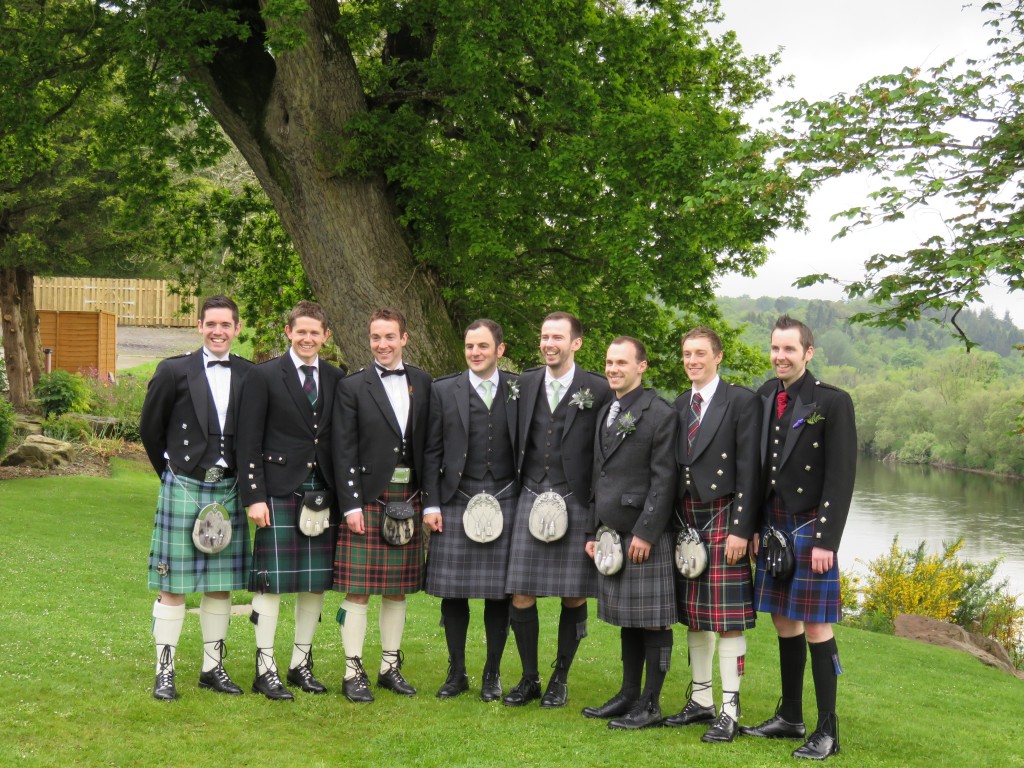Social events can be a source of angst amongst dieters and the super health conscious. All those forbidden foods and alcohol can make things like weddings a challenging environment, a disaster waiting to happen. How do we stay healthy?
Had I written this post a year or two ago it might have been very different. I might have included a list of tips to help you eat ‘clean’, avoid the cake and generally avoid having any fun.
Instead, I’m going to share a different message.
Here’s the insight: The problem isn’t the wedding. The problem is that you have a black and white approach to food. The problem is that you fear certain foods and you fear weight gain. And I’d be willing to bet that you’re not even overweight. As a result, you either attend the wedding all anxious about staying on your diet – politely refusing foods that (if you were honest with yourself) you’d love to eat. Or you eat something forbidden and the floodgates open. “Diet starts tomorrow!”
The irony is that none of this apparently health conscious behaviour is actually healthy. Stress, guilt and anxiety over food is not healthy. Restrict-binge cycles are not healthy and likely promote weight gain. So how do we stay healthy at a wedding?
1. Improve your relationship with your body
Being slimmer or having six pack abs isn’t going to make you more worthy as a person. You’re enough already. It’s ok not to be perfect. Don’t get me wrong, I want to look good on the beach when I go on holiday. But I also know that when I get to the end, the memories of good times spent with friends will probably outweigh any muscular definition I achieved. And I’m not sure a lifetime spent agonising over your weight or your body image is something you’ll look back on with fondness.
I’m not suggesting you ruin your body with all the junk you can get your hands on. But what if the dissatisfaction with your body was the cause of all the stress and anxiety? What if you didn’t need to lose weight? What if you accepted yourself as you are and you just did what made you feel at your best?
2. Improve your relationship with food
Improving your physique still is a great goal to have. And, who knows, maybe being slimmer will make your life better. But a rigid approach is probably not the best way to get there. Sure you’ll eat religiously ‘clean’ for a while but it won’t last. Those who restrict inevitably binge. On the other hand, people who are relatively impartial to different foods tend not to have this issue. They eat what they like until they’ve had enough.
When you recognise that one meal, one food – any food! – cannot make you overweight all on it’s own, you can begin to repair your relationship with food. You can allow for some flexibility in your diet without binging or weight gain. This is easy to say but harder to put into practice – especially if you’ve had a history of restrained eating. But it can be done. At a recent wedding, I ate some sticky toffee pudding without feeling compelled to devour the lot. I was able to have a piece of cake (or two!) and then stop thinking about it. Both were nice, but they weren’t that nice. I’d had enough.
3. Relax
This kinda sums up the first two points. The healthiest thing you can do at a wedding is to relax and stop obsessing over your diet and health. The stress and anxiety is the real problem. Besides, there’s more to health than diet and exercise. You might as well have fun. Eat the food. Have a drink. Dance if you like to.
4. Develop friendships
As well as being able to relax, having strong social ties and a sense of community with others is associated with health, wellbeing and longevity.
The healthy thing to do is to spend time, share experiences and develop friendships with others. Create some memories. Having a laugh probably does more for you than having a multivitamin.
5. Practice helpful habits
If you need to lose weight for the sake of your health, one wedding isn’t the issue. Excess weight comes from frequently consuming more calories than you expend. It’s what you do for the majority of the time. It’s about your habits.
Granted, you might have a busy social calendar. I’ve got a busy year myself with stag trips and weddings and birthdays. But if my habits are generally healthy, i.e. if the vast majority of my calories come from whole, filling, nutrient dense foods, and if I’m physically active, social events shouldn’t be too big a deal.
If you feel you’re eating too much junk in social situations, a couple of questions you might find useful are:
- A: Is it worth the calories? i.e. Will the pleasure I get the from the food be worth the impact on my calorie intake for the day? Sometimes it will be. Other times the ‘treat’ is mediocre and it’s just not worth it.
- B: How much more is it going to take to make me satisfied and happy? When is the stopping point with this food? Is there one? This question can help with the mindless overconsumption of junk foods.
BIG IDEA: The problem isn’t the social situation. The problem is that you have a black and white approach to food, you fear weight gain and are probably a rigid eater.
TAKEAWAY: Improve your relationship with food and your body, and you’ll probably find it easier to enjoy social situations without the anxiety or the weight gain. Being able to relax and enjoy friendships is important for your health.
ACTION STEP: Want a smarter, fad-free way to lose fat? Get the exact nutrition guidelines I share with my clients.
Always Keep Reaching!
Mike
Tomiyama et al. 2010. Low Calorie Dieting Increases Cortisol. Psychosom Med. 72(4):357–364.
McLean JA, Barr SI, Prior JC. 2001. Cognitive dietary restraint is associated with higher urinary cortisol excretion in healthy premenopausal women. Am J Clin Nutr. 73(1):7-12.
Rideout CA, Linden W, Barr SI. 2006. High cognitive dietary restraint is associated with increased cortisol excretion in postmenopausal women. J.Gerontol A Biol Sci Med Sci. 61(6):628-33.
Kandiah et al. 2006. Stress influences appetite and comfort food preferences in college women. Nutrition Research 26(3):118–123
Epel et al. 2001. Stress may add bite to appetite in women: a laboratory study of stress-induced cortisol and eating behaviour. Psychoneuroendocrinology 26 (1):37–49
Wardle et al. 2000. Stress, dietary restraint and food intake. Journal of Psychosomatic Research 48(2):195–202
Stewart TM, Williamson DA, White MA. Rigid vs. flexible dieting: association with eating disorder symptoms in nonobese women. Appetite. 2002 Feb;38(1):39-44.
Meule et al. 2011. Food cravings mediate the relationship between rigid, but not flexible control of eating behavior and dieting success. Appetite. 57(3):582–584
Smith, T. & Hawks, SR. 2006. Intuitive eating, diet composition, and the meaning of food in healthy weight population. American Journal of Health Education 37(3):130-136
Denny et al. 2013. Intuitive eating in young adults. Who is doing it, and how is it related to disordered eating behaviors? Appetite. 2013 Jan;60(1):13- 9.
Holt-Lunstad J, Smith TB, Layton JB. 2010. Social Relationships and Mortality Risk: A Meta-analytic Review. PLoS Med 7(7)
Helliwell, JF. & Putnam, RD. 2004. The social context of well–being. Phil. Trans. R. Soc. Lond. 359(1449): 1435-1446
Kawachi I , Kennedy BP, Glass, R. 1999. Social capital and self-rated health: a contextual analysis. American Journal of Public Health August 1999: Vol. 89, No. 8, pp. 1187-1193.






Thanks a bunch for sharing this with alll of us you really realize what you
are speaking about! Bookmarked. Please additionally visit myy website =).
We can have a link trade arrangement among us
Excellent blog right here! Also your website a lot up fast!
What web host are you using? Can I get your affiliate
link on your host? I desire my website loaded
up as fast as yours lol